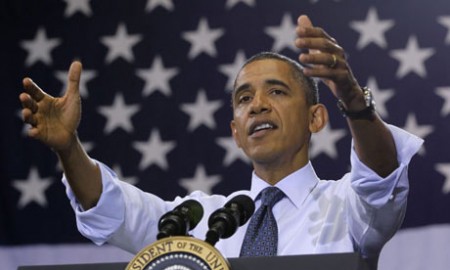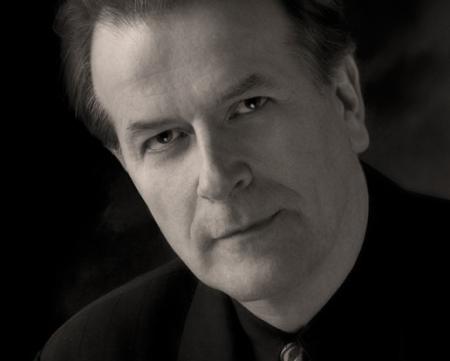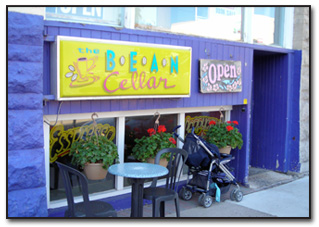The tone is insensitive, but there’s some gleanable insight, too.
Saw, earlier today, that National Post columnist Christie Blatchford was trending big time on the Twitter machine, so I decided to, after reading some of the vitriol that was being hurled her way, see what all the fuss was about.
If you haven’t read her quick-to-become infamous column reflecting on the death of Jack Layton, and the media coverage of it, please have a look and then come back for my views on it.
In a general sense, my overall feeling after reading the column (several times) was one of unease, due to its insensitive nature and timing. However, in a more detailed sense, I find myself carrying a number of view points, not the least of which is that the column has its flaws, certainly, but also some thoughtful insight. I do believe that some have misinterpreted the column as an all-out attack on the memory of the man when, really, it appears to me to be, primarily, a damning of the media coverage of Layton’s passing.
Exclusive to that, I’m again dumbfounded by the electronic “stoning” that goes on with the age of instant messaging. Blatchford is certainly a target of that right now — check the Twitter postings or comments under her column in The Post. I won’t cover that ground again here, but suggest my column on the case of hockey agent Todd Reynolds may be an appropriate companion.
There is plenty of insensitivity to go around in her piece — good lord, does one really have to refer to Layton in his last public appearance as appearing “cadaverous” on the very day he died? Does one really need to refer to the recently deceased’s last public note as “vainglorious” even as those who feel his loss most are only beginning to mourn? I’d suggest you might wait a day or two on that one.
To say that there’s nothing unusual about the outpouring of public grief over his loss is a bit laughable. It is, of course, not usual at all for this kind of thing to happen. Many, many people die every day and it doesn’t spark public gatherings of a national sort. It is an indicator of how strongly some people feel about Layton. Blatchford’s insistence that the age of Facebook and Twitter and instant messaging somehow diminishes the spontaneity and number of people who gathered to honour Layton rings hollow. You can message me a thousand times about something, but if I don’t frankly give a damn about you or your cause, I’m not showing up.
Still, I believe Blatchford is not entirely off in her assessment of the story. Perhaps just the characterization of it. Her damning of the media coverage is also not entirely off the mark, although there, too, she occasionally shows a misunderstanding of the job and demands of a live anchor. She particularly gives a rough ride to CBC’s Evan Solomon. She’s correct in her assertion that Prime Minister Harper’s remarks of the day needn’t have been solely focussed on Mr. Layton.
As well, I think Blatchford has struck an incisive note when she muses on the attachment people in the modern age have for someone they don’t know personally. That is either testament to the power of modern media (nice call, Marshall McLuhan) or to something else. Perhaps a longing by people to attach to someone who they believe exhibits a trait or traits to which they can easily relate or praise.
Her noting of a certain inauthenticity when it comes to media people waxing on about a person they may have only met briefly or interviewed once is bang on. Happens all the time. Regrettably, I’m sure I’ve been guilty of it too.
However, when she criticizes Solomon for his repeated use of the word “extraordinary” in reference to Layton’s final letter (a term that she agreed was actually appropriate) or his “repeatedly” speaking of the difficulty as “we all try to cope” with the news of Layton’s passing, Blatchford illustrates either a disregard for or, as I say, ignorance of the job of a live broadcaster during an unfolding story of great drama. When you’re live, and anchoring ongoing coverage, you’ve a duty to an audience that is changing. Tuning in, tuning out. In service of that, it’s quite necessary to be a trifle repetitive to the ears of those who don’t stray. It’s a little different from print where you write it once, edit it a time or two and then send it out to the world in its static form. There’s no delete button on a live broadcast. The story doesn’t end when you type the last period and hit “send.”
Blatchford asks a question that I think is an easy one to answer. She wrote:
Who thinks to leave a 1,000-word missive meant for public consumption and released by his family and the party mid-day, happily just as Mr. Solomon and his fellows were in danger of running out of pap? Who seriously writes of himself, “All my life I have worked to make things better”?
I believe many, many people leave final messages. They do it for family, friends and colleagues. That message comes in different forms. A hug, a kiss, a word of wisdom, a video or a written message. Not very many do it for the public at large. Except public figures. I wouldn’t be at all surprised if Jack Layton felt obligated to record some kind of sentiment; philosophical, political or otherwise, being that he was very much a public figure. As for the last line, I’m going to give Mr. Layton the benefit of the doubt and figure he meant that all his life he’s tried to make things, in his opinion, better. I don’t think he meant that he’s definitively made things better. So, the use of the word “vainglorious” to describe the missive is bit misdirected, in my opinion.
Blatchford is right about Layton’s message being political. So it can be embraced or attacked on its merit in those passages. Nothing wrong with her taking umbrage with his line about Canada restoring “our good name in the world.” Not everyone would agree we’ve lost that good name. As well, he takes a clear political shot at the Conservatives. So, his final words include, as you’d expect, some politics. You can call that vain or cynical, or you can call it being a leader to the end. Whether she intended to or not, Blatchford’s characterization is that Layton was being a leader to the end. Sounds right to me.
While the Twitterverse has been quick to jump all over Blatchford for desecrating the memory of the man, it’s probably fair to point out that there are passages in her column that show admiration for Layton in some sense. For example:
His greatest moments — the bravest and most admirable — came during his fight with prostate cancer, the subsequent hip surgery and his most recent battle with the cancer, whose nature he never disclosed except to say it was new, which killed him.
He must have been in pain; he may have been afraid. Yet again and again, waving the cane that became in his clever hands an asset, he campaigned tirelessly.
Those are complimentary words and worthy of note.
In the immediate aftermath of the death of a beloved public figure, Christie Blatchford’s column is ill-timed. While there’s plenty to quarrel with in it, there’s also some insight that, when you peel away the veneer of insensitivity, just may ring true. Will the column look differently in 2 months?
[box border=”full”]To read SUN TV INTERVIEW ISN’T WORTH COMPLAINING ABOUT, click here.[/box]
[box border=”full”] To read THE MAMMOLITI GAMBIT: COUNCILLOR STRANGELOVE, click here.[/box]
[box border=”full”]To read WHERE IS MARSHALL MCLUHAN’S COUCH, click here. [/box]





